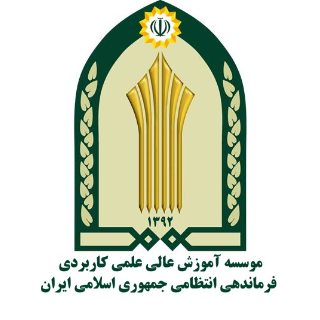Meeting on Enhancing Scientific and Educational Cooperation between the University of Applied Science and Technology (UAST) and the Law Enforcement Command of the Islamic Republic of Iran (FARAJA)

In line with the University of Applied Science and Technology’s (UAST) efforts to strengthen its scientific interactions and collaborations with national institutions, and considering the role of the FARAJA Institute of Higher Applied Education in identifying and planning to meet the educational needs of the Law Enforcement Command of the country, a meeting on strategies for developing cooperation between UAST and FARAJA was held on Saturday, October 19, 2025, hosted by the Office of Scientific and International Cooperation of the University.
The session was attended by senior managers and heads of specialized departments of UAST, as well as the president and vice-presidents of the FARAJA Institute of Higher Applied Education.
At the beginning of the meeting, Dr. Bagheri, Director General of the Office of Scientific and International Cooperation, referred to the important role and position of the FARAJA Institute as an integral part of UAST’s structure. He elaborated on the objectives of the session and stated:
“This meeting provides an opportunity for a comprehensive review of potential areas of cooperation and for exchanging views on strategies to address existing needs and make effective use of shared opportunities.”
Dr. Bagheri also highlighted the potential of the FARAJA Institute to provide training programs for police officers from regional countries, describing it as one of the promising avenues for the institute’s international development.
Following this, Dr. Karimi, President of the FARAJA Institute of Higher Applied Education, outlined the institute’s diverse activities and the capacities of its 37 affiliated educational centers. He discussed the institute’s needs in areas such as degree and non-degree programs, implementation of the National Qualifications Framework, utilization of FARAJA commanders as applied academic instructors, and the integration of short-term courses aligned with the specific operational requirements of the Law Enforcement Command.
During the discussions, the specialized directors of UAST presented several ideas and proposals, including:
* Establishment of FARAJA specialized centers beyond provincial units
* Analysis of student recruitment trends in dedicated FARAJA programs
* Identification of emerging educational needs in line with technological developments
* Development of relevant curricula and training programs
* Engagement of law enforcement experts as applied instructors
* Utilization of UAST’s consultative capacity in designing FARAJA’s job competency models
* More effective use of short-term and skill-based training courses
